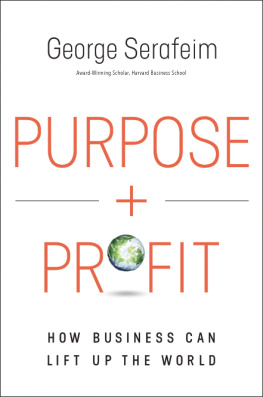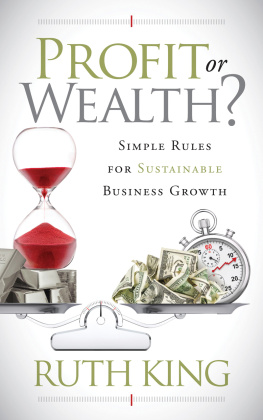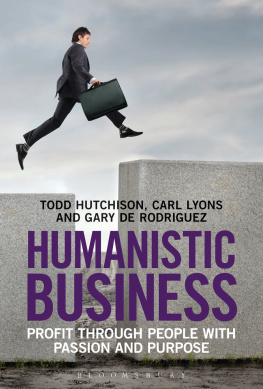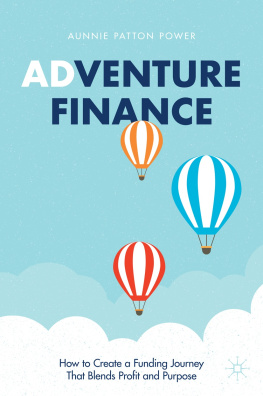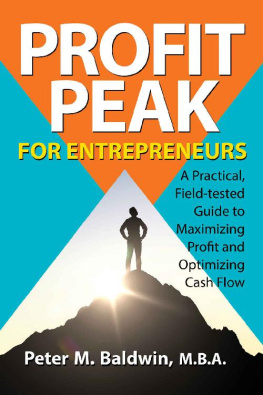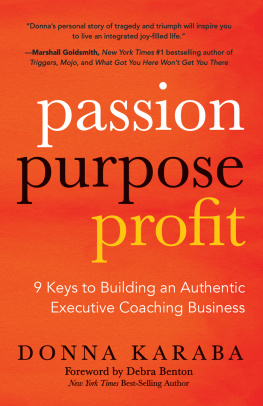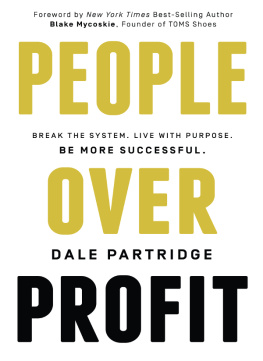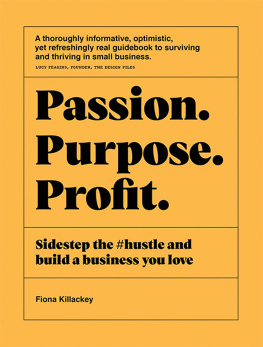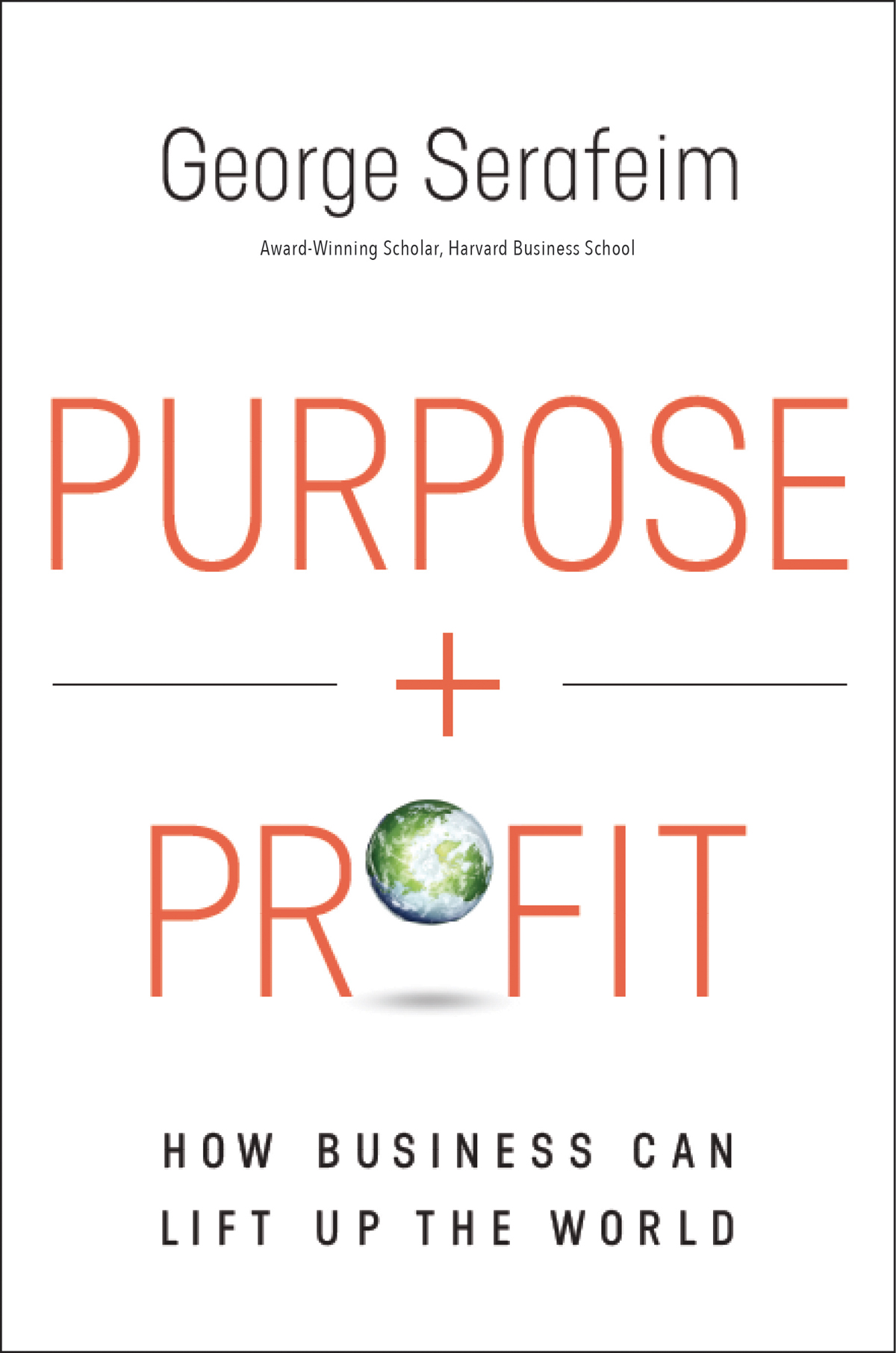2022 by George Serafeim
All rights reserved. No portion of this book may be reproduced, stored in a retrieval system, or transmitted in any form or by any meanselectronic, mechanical, photocopy, recording, scanning, or otherexcept for brief quotations in critical reviews or articles, without the prior written permission of the publisher.
Published by HarperCollins Leadership, an imprint of HarperCollins Focus LLC.
Any internet addresses, phone numbers, or company or product information printed in this book are offered as a resource and are not intended in any way to be or to imply an endorsement by HarperCollins Leadership, nor does HarperCollins Leadership vouch for the existence, content, or services of these sites, phone numbers, companies, or products beyond the life of this book.
ISBN 978-1-4002-2642-9 (eBook)
ISBN 978-1-4002-3035-8 (HC)
Epub Edition May 2022 9781400230365
Library of Congress Cataloging-in-Publication Data
Library of Congress Cataloging-in-Publication application has been submitted.
Printed in Canada
22 23 24 25 26 LSC 10 9 8 7 6 5 4 3 2 1
Information about External Hyperlinks in this ebook
Please note that the endnotes in this ebook may contain hyperlinks to external websites as part of bibliographic citations. These hyperlinks have not been activated by the publisher, who cannot verify the accuracy of these links beyond the date of publication
CONTENTS
Guide
I have to begin with a confession. When I was starting my career, I would not have picked up this book. Its not that I didnt care about whether businesses were helping the world, or whether purpose and profit could coexist. I just didnt think such topics were relevant to my life. I began my career analyzing and valuing insurance companies. Whether or not they were helping the planet in a broader sense than making a profit for their shareholders, providing a good living for their employees, or serving their customers with the products they sold werent the most prominent questions on my radar.
I went to business school expecting to expand on the work I had been doing. I loved the intellectual challenge of diving into the technical aspects of valuation and really understanding complex financial instruments. I emerged with a doctorate from Harvard Business School in the era of the great financial crisis. My research on deeply technical issues was gaining traction and being published in some of the most prestigious academic journals in my field. I was fortunate upon graduation to receive offers to join the faculty of several top universities.
Still, something was missing.
One day, I was talking with a good friend, Ioannis Ioannou, a strategy professor at London Business School. Ioannis and I had overlapped in the doctoral program at Harvard and had long wanted to work together, but we had not yet found the time or identified an overlap in our research interests. He asked if I knew anything about companies that were making efforts to improve their impact on society. We began talking about issues like businesses treating their workers better, reducing pollution, and acting with integrity. We wondered why these issues were seldom considered as important as shareholder profits, and whether there was actually any data to support the commonly held view that doing things with social good in mind distracted from the core mission of a business and inevitably became a drag on performance.
As we reflected on these questions, I realized we did not have great answers. These discussions led me to reconsider the work I had been doing, and if it was truly the most impactful use of my skills and knowledge. I cared about the papers I was writing, but I wasnt sure if they filled me with a sense of purpose. I wanted to do more, and quickly discovered that the more I dove into thinking about companies and their impact on society, the more these issues mattered to me.
The truth is that I did not know why some companies behaved with an eye toward a greater purpose, and why some chose not to. I didnt know what the consequences were or even how to begin to analyze them. I did know that the world was a very complex place, and trying to understand how companies behave was inherently complicated. I also knew that if Ioannis and I took on this challengeto explain the actions of companies and whether there were lessons to learn from their behaviorwe would be fighting an uphill battle when it came to the data. Very few companies back then released data on measures such as diversity in the workforce, accidents, benefits provided to employees, carbon emissions, water consumption, or the access and affordability of their products. This was a big problem. How could we evaluate and understand the role of business in society if we did not have data?
Armed with the data we did have, we first tried to understand whether investors cared about the efforts of companies acting with a larger purpose in mind. Analyzing data on thousands of companies, we were able to show that Wall Street analysts were in fact issuing more pessimistic investment recommendations for firms making efforts to improve their impact on society than for those that werent. The investment community seemed to hold the staggering belief that having a positive social impact was a signal that a company would perform worse than its peers in the future. How could we be living in a world where managers were penalized for doing good? More important, were these forecasts right? And if they were, what made them so? If doing good really did hamper a companys future performance, should we accept that reality, or could we instead work to change it? How, for instance, could we create the conditions for a society in which doing good would lead to doing well?
Doing the work was tough. Convincing people to take the work seriously was even tougher. The paper based on that research took us five (!) years to publish in a top academic journal. I was shocked at how little the academic world was considering these issues, especially since my archival and field research was convincing me that these issues were becoming more important for many in the business world, from CEOs to investors to employees and even to consumers looking to better understand the companies with which they engage. Yet there was so much resistance, so much unwillingness to consider the idea that social and environmental issues could be relevant and meaningful for business.
Many people in business saw these issues as soft and outside the scope of what a serious person should be thinking about. In 2011, I presented a piece of my research to an audience of about one hundred senior investment professionals across major financial institutions. The feedback was unanimous: These topics are irrelevant. Not one person followed up with me to express an interest in understanding the data or exploring the work further. As a faculty member hoping to earn tenure, I recognized this was becoming a very risky adventure, as publishing in this nascent field was so difficult. Several friends, having my best interests in mind, gave me some simple advice to secure my career and my academic future: Drop it.
I didnt want to drop it. By that point, my analysis and study of the behavior of companies, investors, and policymakers had led me to form the hypothesis that climate change, diversity and inclusion, access and affordability to products and services, product safety and quality, and opportunity in the workplace were examples of issues not just important in society but critical in business. I knew that the way to make people understand thisand not simply dismiss the ideas as softhad to involve continued (and continuous) generation and analysis of objective data.

